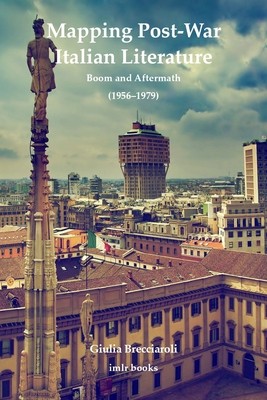
- We will send in 10–14 business days.
- Author: Giulia Brecciaroli
- Publisher: Igrs, University of London
- ISBN-10: 0854572848
- ISBN-13: 9780854572847
- Format: 15.2 x 22.9 x 1.3 cm, minkšti viršeliai
- Language: English
- SAVE -10% with code: EXTRA
Reviews
Description
In the aftermath of the reconstruction period immediately after the Second World War, Italy experienced an unprecedented and unexpected phase of economic development, which transformed it from a traditionally agrarian and impoverished country into one of Europe's most industrialized nations. The idea, treasured to this day by many Italians, of this period as a sort of 'golden age' has increasingly been called into question by historical research that has delved into the deeper, persistent contradictions of Italian society at the time. Mapping Post-War Italian Literature embraces the boom years and their legacy, exploring the long-lasting impact of post-war Italy's urbanization and modernization on the imagination of Italian writers. It does so by looking at how socio-spatial transformations affecting the main industrial cities of the North - Milan and Turin - as well as the provinces (a space generally deemed 'peripheral') and the national landscape have been conceptualized in contemporary novels and travel accounts. The selected texts cross genre boundaries and reflect an array of authorial positions, giving a compelling and multifaceted account of the post-war historical transition.
EXTRA 10 % discount with code: EXTRA
The promotion ends in 23d.06:02:39
The discount code is valid when purchasing from 10 €. Discounts do not stack.
- Author: Giulia Brecciaroli
- Publisher: Igrs, University of London
- ISBN-10: 0854572848
- ISBN-13: 9780854572847
- Format: 15.2 x 22.9 x 1.3 cm, minkšti viršeliai
- Language: English English
In the aftermath of the reconstruction period immediately after the Second World War, Italy experienced an unprecedented and unexpected phase of economic development, which transformed it from a traditionally agrarian and impoverished country into one of Europe's most industrialized nations. The idea, treasured to this day by many Italians, of this period as a sort of 'golden age' has increasingly been called into question by historical research that has delved into the deeper, persistent contradictions of Italian society at the time. Mapping Post-War Italian Literature embraces the boom years and their legacy, exploring the long-lasting impact of post-war Italy's urbanization and modernization on the imagination of Italian writers. It does so by looking at how socio-spatial transformations affecting the main industrial cities of the North - Milan and Turin - as well as the provinces (a space generally deemed 'peripheral') and the national landscape have been conceptualized in contemporary novels and travel accounts. The selected texts cross genre boundaries and reflect an array of authorial positions, giving a compelling and multifaceted account of the post-war historical transition.


Reviews